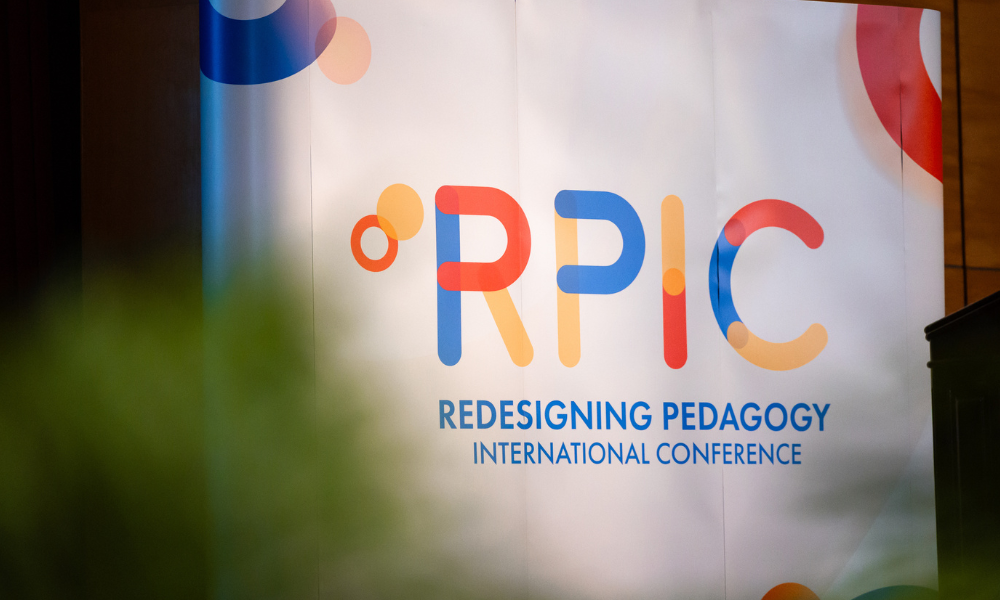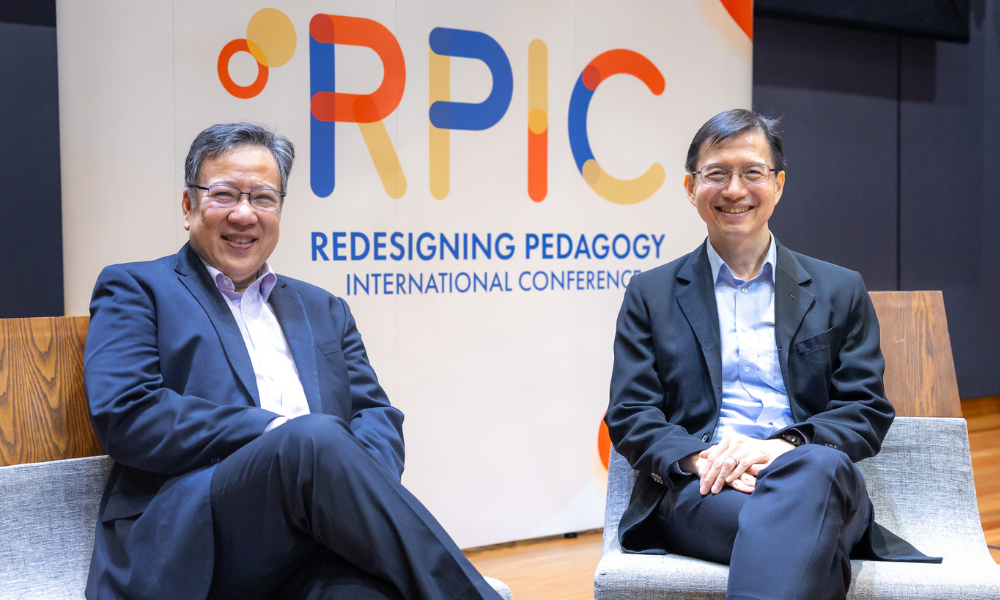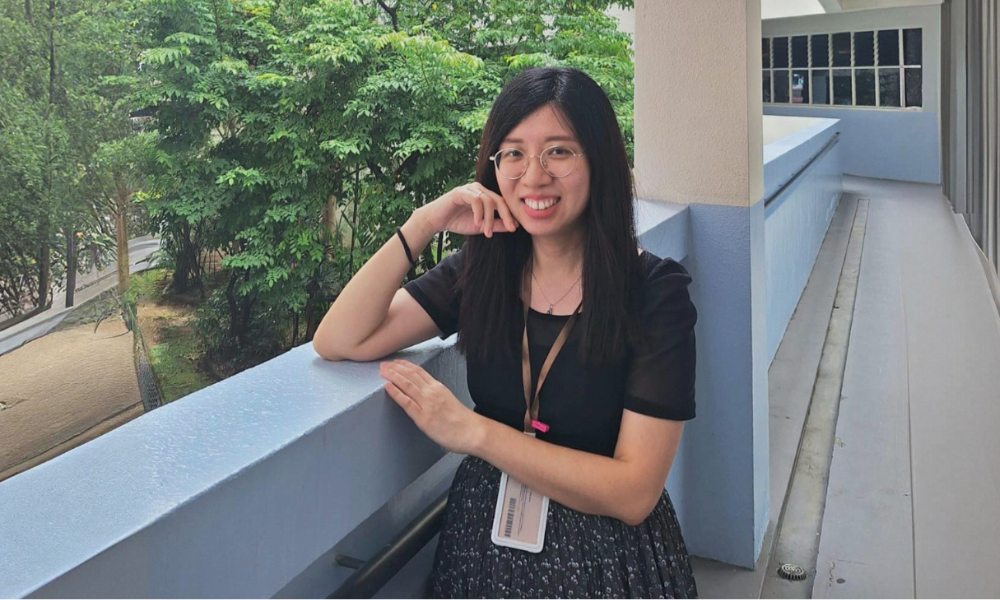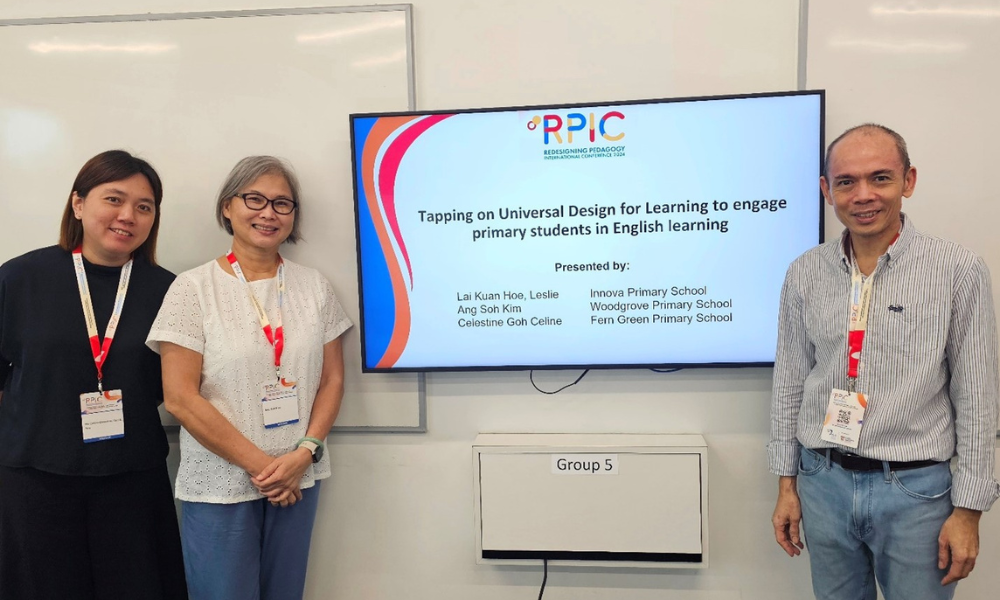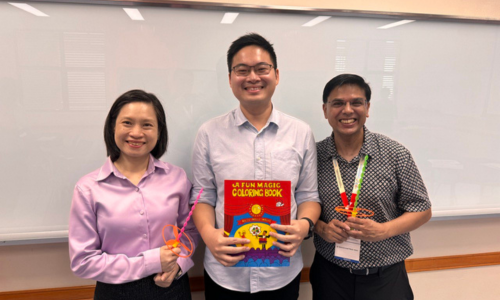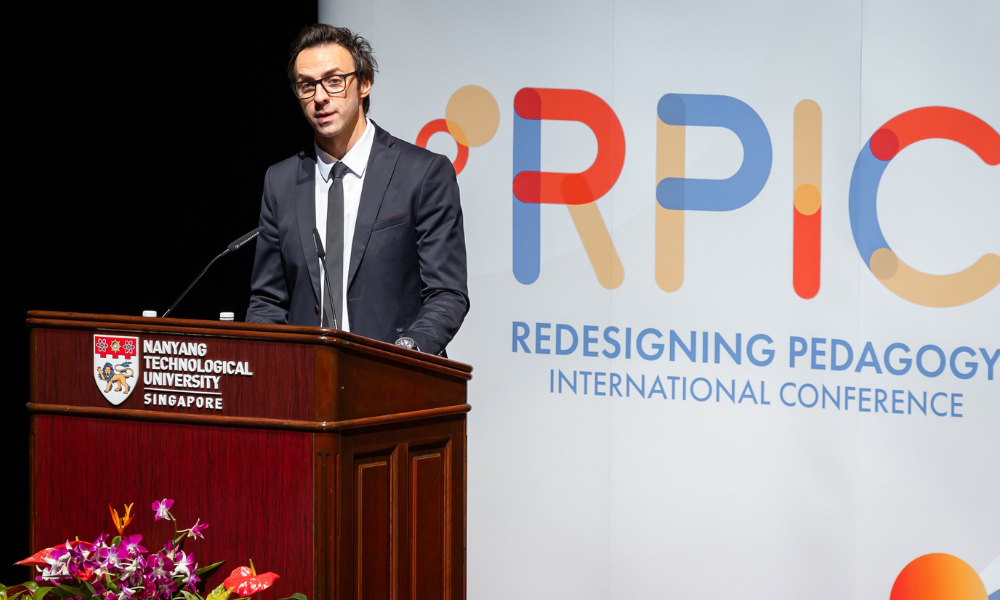Acting on a Passion
When a school-wide action research initiative was introduced at Coral Secondary School, English teachers Lee Fong Ting and Kalavathi Sabapathy took the opportunity to explore the effectiveness of selective grammar correction of writing assignments.
The problem
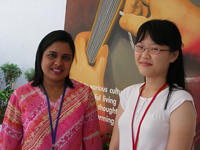 Fong Ting had encountered the idea of selective grammar correction about 5 years ago when she was doing her honours’ thesis. According to educational researchers, this approach was useful for improving students’ grammar skills. Drawn by its promise to reduce teachers’ workload and increase the effectiveness of students’ learning, Fong Ting and Kala decided to find out if this approach could work in the local context.
Fong Ting had encountered the idea of selective grammar correction about 5 years ago when she was doing her honours’ thesis. According to educational researchers, this approach was useful for improving students’ grammar skills. Drawn by its promise to reduce teachers’ workload and increase the effectiveness of students’ learning, Fong Ting and Kala decided to find out if this approach could work in the local context.
“As teachers, we found that we were doing lots of marking, but we were wondering: Are the children really learning, or are they merely correcting whatever we’ve corrected?” explains Kala, who has been teaching for 10 years.
They adopted an experimental design for their research project, and implemented it with Fong Ting’s Secondary 1 Express class. They divided the class into two groups. One group received the experimental treatment where only some of their grammar errors were marked, while the control group had all their errors marked as per normal.
The process
Although they had chosen a method that could be carried out in their own time, the process was nevertheless demanding. School holidays and after-school hours were spent reading up on the literature and analysing their data.
“We had to go through a very tedious process of marking. Throughout the whole year, for every piece of composition, I needed to use selective grammar marking for one group, and then to consciously remind myself to identify all grammar errors for the other group,” recalls Fong Ting. “And then we had to keep a statistical record, manually counting the number of errors made, and then regularly keying our data into a computer system.”
Fortunately, they had tremendous support not only from the school management, but also from NIE academics whom the school engaged as consultants. Says Kala, “They’re able to afford more time to give us consultation on how to modify or improve, and to guide us and to keep us on the right track, to tell us whether it’s feasible to proceed to the next level. That has been very useful.”
The results
After a whole year of implementing the selective grammar marking, they compared the final examination composition scripts to see if the students in the experimental group had made fewer grammar errors. Interestingly, the pair found that pupils who had every grammar error identified generally made fewer mistakes than those who received selective grammar correction treatment. With regards to the targeted grammar errors, it was found that selective grammar correction could either largely improve or worsen pupils’ ability in the identification and correction of such errors.
“We found that selective grammar correction is not very effective, at least in our class. We suspect that selective marking may be more suitable for students who already have higher language proficiency,” explains Fong Ting.
Still, they are not about to give up. In fact, Fong Ting has already begun trying out a new and improved approach, starting Term 3 this year. “Instead of selectively identifying one or two types of grammar errors, what we recommend is that we still mark all grammar errors, but gradually, we selectively not mark one or two types of grammar errors. We call it selective non-identification.”
The benefits
While the process has been arduous at times, both Fong Ting and Kala readily testify to the benefits of action research, both at the personal and professional levels.
“Personally, I feel that I have achieved something in the academic field, and I’m glad that my study produced some useful knowledge for language teachers,” shares Fong Ting. “Professionally, I also learnt a lot. Action research gives us a platform to really test it out for ourselves, and to find other alternatives so that it can improve our teaching. It gives you a platform to reflect on your teaching practices.”
“Researching is itself an enriching process,” adds Kala. “It gives you a challenge, because you really have to put in a lot of effort and question the researchers, whether it’s relevant and what they have missed out. It really trains you to think critically, so in that sense, I think this research process is really beneficial for teachers, because we have to keep learning for life.”
Fong Ting aptly sums it up when she says, “Once you foresee the impact of your research in a school environment, and once you’re passionate in it, you would feel very motivated to continue to do your action research. And you’ll feel very motivated to overcome all sorts of obstacles along the way.”

